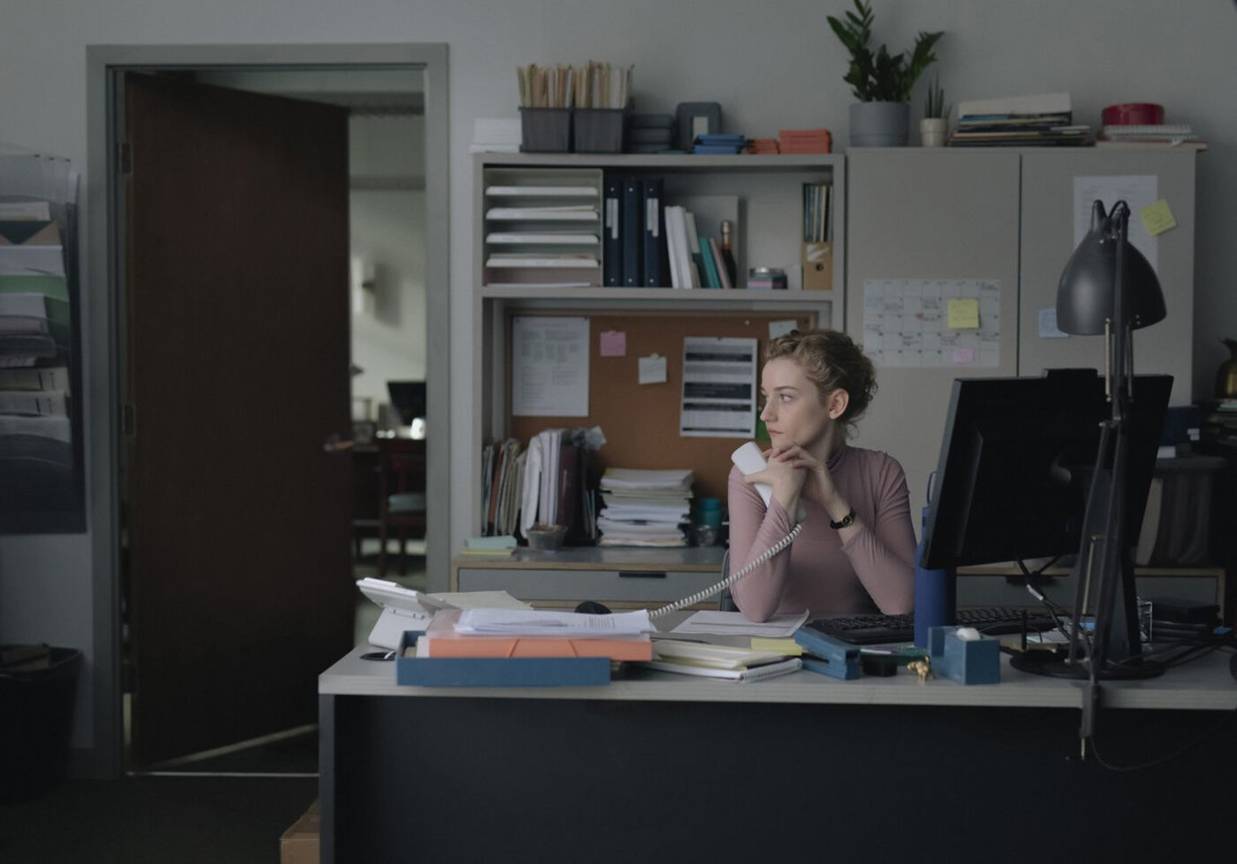Silently but unceremoniously, the painfully recognisable #MeToo drama The Assistant blows everyone away. Director Kitty Green does not focus on the abusive stars of the film world, but on the workplace that doesn't buckle.

1764 FILM The Assistant1
'The Assistant': back to the pre-MeToo era
A young assistant does what all her colleagues, higher up in the pecking order, probably haven't been doing for years: she musters up the courage to go to HR to denounce the sexual predatory behaviour of her bully of a boss. Does the film mogul then end up behind bars for 23 years like Harvey Weinstein? Not at all. The Assistant is set just before the #MeToo revolt and the unmasking of Weinstein as an abuser of power and a rapist.
Director Kitty Green does not jump on the bandwagon of the triumphalist reckoning with wrong men with her fiction debut, as, for example, Bombshell with Charlize Theron and Nicole Kidman served up. She prefers to sketch the oppressively macho climate in the sector and on the shop floor within which that reprehensible, punishable, sexist misconduct could exist undisturbed.
The film mogul who is constantly preying on young women with dreams of advancing in the film industry does not appear in the picture even for one brief moment. We follow a day in the life of a young assistant, a stunningly controlled yet intense performance by Julia Garner. She arrives at the office at dawn to turn on the lights, turn on everyone's computers, and clean up her boss's tracks. Everyone knows what happens – never sit on the sofa, jokes a young man – but everyone keeps quiet.
Director Kitty Green does not jump on the bandwagon of the triumphalist reckoning with wrong men
JEANNE DIELMAN
In the office hell, devoid of film glamour, cheerfulness and daylight, the assistant does her thousands of jobs. Like making coffee, babysitting so the men can have meetings, putting off an angry wife and being snapped at by a frustrated colleague who is not satisfied with his sandwich. Sound the alarm if you recognise it.
The accumulation of petty aggressions, the glimpse of the harmful culture of silence, the banality of the techniques of oppression makes you uneasy. “Does my film make you uncomfortable? Perfect. That is a good thing. For too long we have taken these problems too lightly. Let's shake things up and get the debate going,” Green says.
For her screenplay, she spoke with dozens of women in the film industry and came to the conclusion that the toxic work environment hostile to women is causing needless calamity even without perfidious bosses. In interviews she talks about a cultural system error but her film avoids the big message or the fiery argument. It speaks for itself, soft and ruthless. The references were the oppressive, claustrophobic lighting and colour palette, the Mindhunter series and David Fincher's masterful Zodiac. Jeanne Dielman, 23, quai du Commerce, 1080 Bruxelles by Chantal Akerman was the reference for the calamity hidden in the daily grind. Viewer and assistant become one. An experience not easily forgotten.
THE ASSISTANT
US, dir.: Kitty Green, act.: Julia Garner, Owen Holland
Read more about: Film